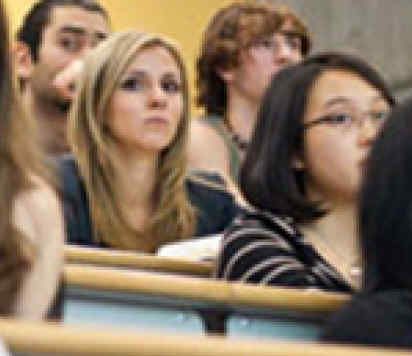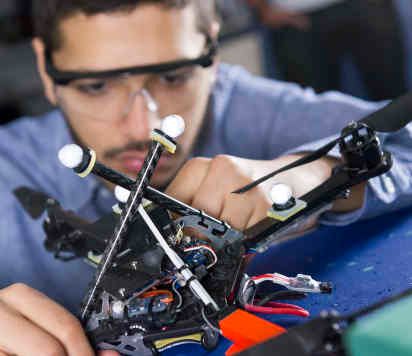Aerospace engineering faces many exciting environmental and energy challenges, which require major reductions in emissions, noise and aircraft weight. The precision expertise associated with this has also stimulated a range of related aerospace and non-aeronautical activities. At the Department of Aeronautics, we are addressing those challenges and making substantive contributions to the future of aviation. In the latest Research Excellent Framework, we were assessed to have the highest proportion of world-leading researchers in the UK.
Our research is funded through many sources including the EPSRC, the EU, and a range of industrial and government collaborators. We have many state-of-the-art research facilities, some of which are unique to the UK which are also used for teaching and commercial research. In these pages you can find an introduction to our main research themes. and detailed information about the breadth in the full list of the research groups.
Research highlights
Research Associates Dr Zahra Soltani and Dr Isabella Fumarola are working together on an EPSRC sponsored project called "Understanding and exploiting non-equilibrium effects on turbulent boundary layers: Towards realisable drag reduction strategies".
You can out more about this research on Zahra's profile page.
At the end of his second year as an undergraduate at Imperial College London, Aeronautics student Nnaemeka Anyameleworked with the 10x5 Wind Tunnel team on a COVID-19 related research project supported by the Undergraduate Research Opportunities Programme (UROP).
Read Nnaemeka's profile for more information about the research project and the UROP scheme.
In response to the Coronavirus outbreak, our team has been assessing the airborne transmission risk of SARS-like viruses (such as COVID-19) during outdoor exercise.
Research areas
The short videos below introduce some of the research areas in the department. Follow the links to find out more about our research.
Video intros
This short video highlights the breadth of research in High and Low-Speed Experimental Aerodynamics that takes place at the Department of Aeronautics.

This video illustrates the Department's Computational Fluid Dynamics (CFD) research. Professor Peter Vincent talks about how we use computers to solve complex fluid flow problems, with applications across the aerospace and automotive industries, as well as marine and green energy.
Dr Georgios Rigas explains about this emerging research area, in which several methods and tools using data are exploited to tackle problems found in fluid mechanics (due to limited measurements and complex physics). Meanwhile, Dr Eric Kerrigan and Dr Thulasi Mylvaganam talk us through the concept of Control, and how control algorithms can be optimised for autonomous systems and much more beyond.



